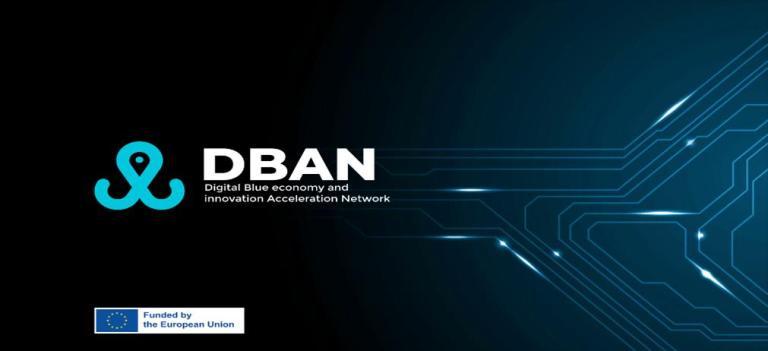Embracing digitalization is crucial for facilitating green and just transition, offering industries an opportunity to streamline their operations in an efficient and sustainable manner. The challenge lies in fostering a sustainable blue economy that leverages digital innovations while promoting cooperation among stakeholders across countries and industries.
The Digital Blue Economy and Innovation Acceleration Network (DBAN) project aims to accelerate digital blue innovations in the Black Sea region. Aligned with Goal 2 - A competitive, innovative, and sustainable blue economy - of the Common Maritime Agenda (CMA) for the Black Sea, it seeks to enable the development of a competitive, innovative, and sustainable blue economy in the region. DBAN supports small and medium-sized enterprises (SMEs) and other business initiatives in the blue economy sectors, building on their potential for innovation, circular and bio-based solutions, as well as their contribution to local and regional development.
The project kicked off on July 1, 2022and will last until June 30 2024. It is co-funded by the European Maritime, Fisheries, and Aquaculture Fund (EMFAF), with an EU contribution of EUR 414,797.88. The countries involved are Bulgaria, Georgia, and Ukraine, with project partners including Obshtina Burgas, International Business and Economic Development Centre (IBEDC), Jugoiztochen Digitalen Inovacionen Hub (DIGIHUB), and Odesa State Agrarian University (OSAU).
According to Zoya Stoyanova, the project coordinator, "In current geopolitical and economically turbulent times and in a state of pressing climate emergency, we need to navigate cities and society to bring positive change by growing consciously, developing sustainably, acting, and innovating responsibly. This is especially true for the development of blue economy sectors in the Black Sea."
The main objective of the DBAN project is to promote a sustainable and digitalized blue economy in the Black Sea region, by establishing a regional digital Blue Innovation Acceleration Network. To build this digital platform, firstly, it will develop a regional blue growth strategy, identifying local needs and potential for smart blue innovation and specialization in partner regions. This strategy will guide capacity building and sustainable initiatives of companies and regions alike. Secondly, a digital platform will be established as an open data repository, serving as a hub, for information exchange, collaboration, and fostering innovation in maritime sectors.
Blue Innovation Hackathons in partnering cities of Burgas, Batumi, and Odessa will bring together creative minds to develop sustainable solutions for the blue economy. Winning finalists of the hackathons will receive mentorship and access to incubation programs to channel their ideas and transform them into viable business plans. Moreover, each project partner will organize Blue Innovation expos and smart specialization conferences, facilitating knowledge sharing and networking within the blue economy sectors in the region.
To enhance the digital skills of companies, the project's digital platform will offer training modules to equip participants with the necessary knowledge to navigate the digital landscape of the regional blue economy. Approximately 300 participants will benefit from these modules, furthering their capacity for driving sustainable and innovative practices.
By the end of the project, three successful hackathons and three expo events will have engaged a total of 150 participants. The digital platform is expected to receive around 10,000 hits, indicating widespread interest and engagement. These accomplishments will significantly improve the visibility and participation of companies and value chains, fostering a digital and environmentally sustainable blue economy in the Black Sea region.
To learn more about the project, visit the following channels:

